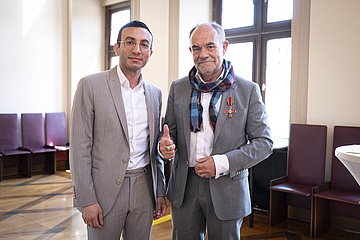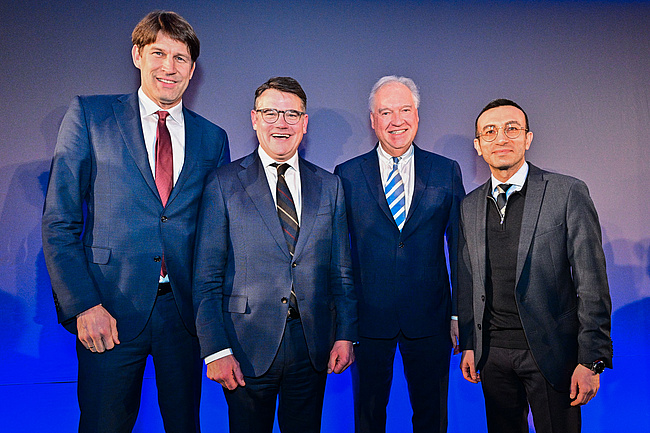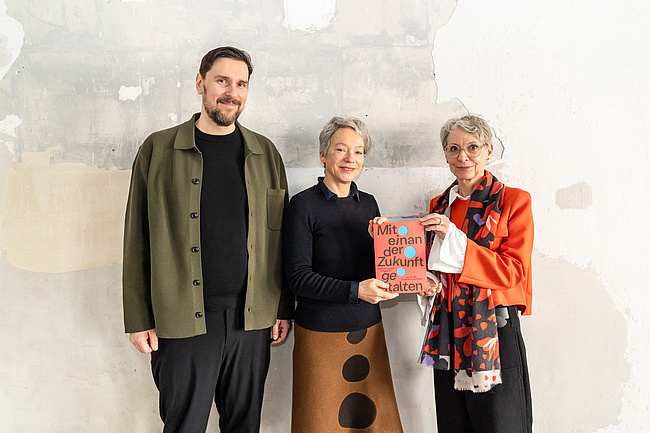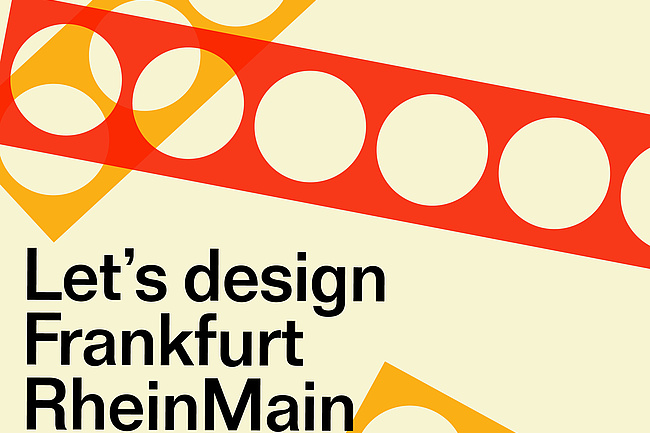Roland Frischkorn has been chairman of the Frankfurt sports district for 23 years. The 69-year-old has been involved for many years voluntarily in the social, cultural and political spheres in the urban society. For example, he is the long-standing chairman of the "Faprik" association, a group that promotes educational projects. Frischkorn is also one of the founding members of the "Waggong" association, which organizes socio-cultural projects in the city districts. For his commitment, he was awarded the Federal Cross of Merit on Ribbon by Mayor Mike Josef on Friday, July 7. The city leader said: "Roland Frischkorn embodies the diversity of our Frankfurt sports city with his commitment. I thank him for his tireless commitment to Frankfurt's clubs; his work unites and brings the city together."
Growing up in Sterbfritz near Schlüchtern, Frischkorn came to Frankfurt as a young man to train as a biology lab technician at what was then Höchst AG. He became involved in the youth and trainee representation as well as the IG Chemie, Papier, Keramik union. Later, he worked full-time for the union. He then worked as an office manager in the city's social services department and held various positions at ABG Frankfurt Holding. In addition, he was a member of the city council for two legislative periods. In an interview, Frischkorn talks about his life, social commitment and sports in Frankfurt.
Mr. Frischkorn, what does the award mean to you?
ROLAND FRISCHKORN: Of course I am personally pleased. But it is also an award for the very many people who have accompanied me during my social commitment in the past 64 years. It started very early: At the age of five, I had already recited poems in public in Sterbfritz (laughs). As schoolchildren, we organized the first demonstration in Schlüchtern against the poor room situation at the secondary school. In 1977, as youth secretary of the trade union, I organized one of the first demonstrations against youth unemployment. You don't do all that alone.
My current work in the sports circle illustrates this all the more: last year we held 6140 events with a full-time staff of 20. That would not be possible without all the many volunteers. And of course there is a personal side to all this. I fight for my goals. In that respect, I'm also an argumentative person.
How did you come to the Sports Circle?
FRISCHKORN: Actually, I come from a family of soccer players. But I had no desire to do so, as my father pretty much dominated the action as a coach. Many years later, when we enrolled one of my daughters in the First Sindlingen Swimming Club, it developed into something more. I took swimming lessons and also competed in the Frankfurt City Championships. And at some point I was on the club's board of directors, of which I had been a member for many years. From that, my path to the sports circle developed. Today I no longer swim actively, but go to the gym regularly.
Sport in social responsibility, what does that mean to you?
FRISCHKORN: Perhaps first of all from the principle: I always say that we too often put people in drawers, instead of discussing what opportunities the piece of furniture offers, in which the drawers are. In practical terms, this means that we have to see sport as a social opportunity to reach people and help them when they need it. The night sports initiative of the Sportjugend, for example, shows how this can be done. This generates up to 12,000 contacts. Or take a look at our Gallus projects. We are not only active there in sports with many projects such as the Bolzplatzliga for young people, but also successfully support up to 150 people each year in finding a training position.
Of course, sport must also develop new formats to face up to social changes. We have around 3,000 people in Frankfurt who actively practice calisthenics. Then there is the streetball project for the open basketball scene at the European Central Bank. These are rather loose forms of organization that are below the club threshold. This is something we also take care of.
However, we should also turn the tables: There is always a lot of talk about what the sports clubs would have to achieve. But what about the other way around? Specifically, I mean the economy. That, too, is social responsibility. We've come a long way in that regard, if I think back to my time at Höchst AG. They provided concrete support for clubs, for example by welding a pier for a neighboring rowing club. Financial support was also more pronounced in the past.
How do you assess the current state of Frankfurt's sports landscape?
FRISCHKORN: As far as the clubs are concerned, good. The following figures, for example: when I became chairman of the sports district in 2000, we had 113,000 members in 640 clubs. Today, there are 300,000 members in 415 clubs - in other words, more than the city population has grown. The demand is huge. Often the clubs can't satisfy it, which leads to waiting lists. I find that sad. At the same time, clubs have adjusted their offerings, which leads to growth. Gymnastics, health and prevention offers are particularly in demand. In some clubs, this division accounts for two-thirds of members.
A good example of this is TG Bornheim, with its impressive growth in recent years. The fitness studios don't scare me either: they have about 140,000 customers. I see them as a complement to us and not as competition. So it's clear to me: we in the sports clubs are health providers number 1.
This development goes hand in hand with increased space requirements. Fortunately, the administration has realized that sports clubs can build fairly quickly. Therefore, I am glad that the administration provides a cost subsidy for clubs that build themselves. In the case of the Harheim gymnastics club, this subsequently led to a doubling of the number of members. We get the dynamics in the city growth also in the clubs, quite clearly.
If you had some water to pour into the wine, where would it be?
FRISCHKORN: First at this point, in the construction of sports facilities. Many clubs still train on facilities or in buildings that are in urgent need of modernization. There is still a lot ahead of us here, and the state is also called upon to help. This issue also presents itself when we look to the future. New urban districts and neighborhoods are currently being built. I call for a modern three-field hall to be built with every new school. That way, everyone in the district has something to gain from it. It must not be the case that the construction of sports facilities is discussed in competition with other fields of action.
Then I already mentioned it earlier, the responsibility of the economy. Through healthy employees, they also benefit from our work. On the one hand, there is the material support I mentioned earlier. On the other hand, we have a need to train our volunteers because of our growth. I therefore call on the business community to release their employees if they attend an exercise instructor course. This also used to happen more often. Incidentally, companies also benefit from this: social skills, which are becoming increasingly important in working life, are also trained on these courses.
Interview: Ulf Baier












